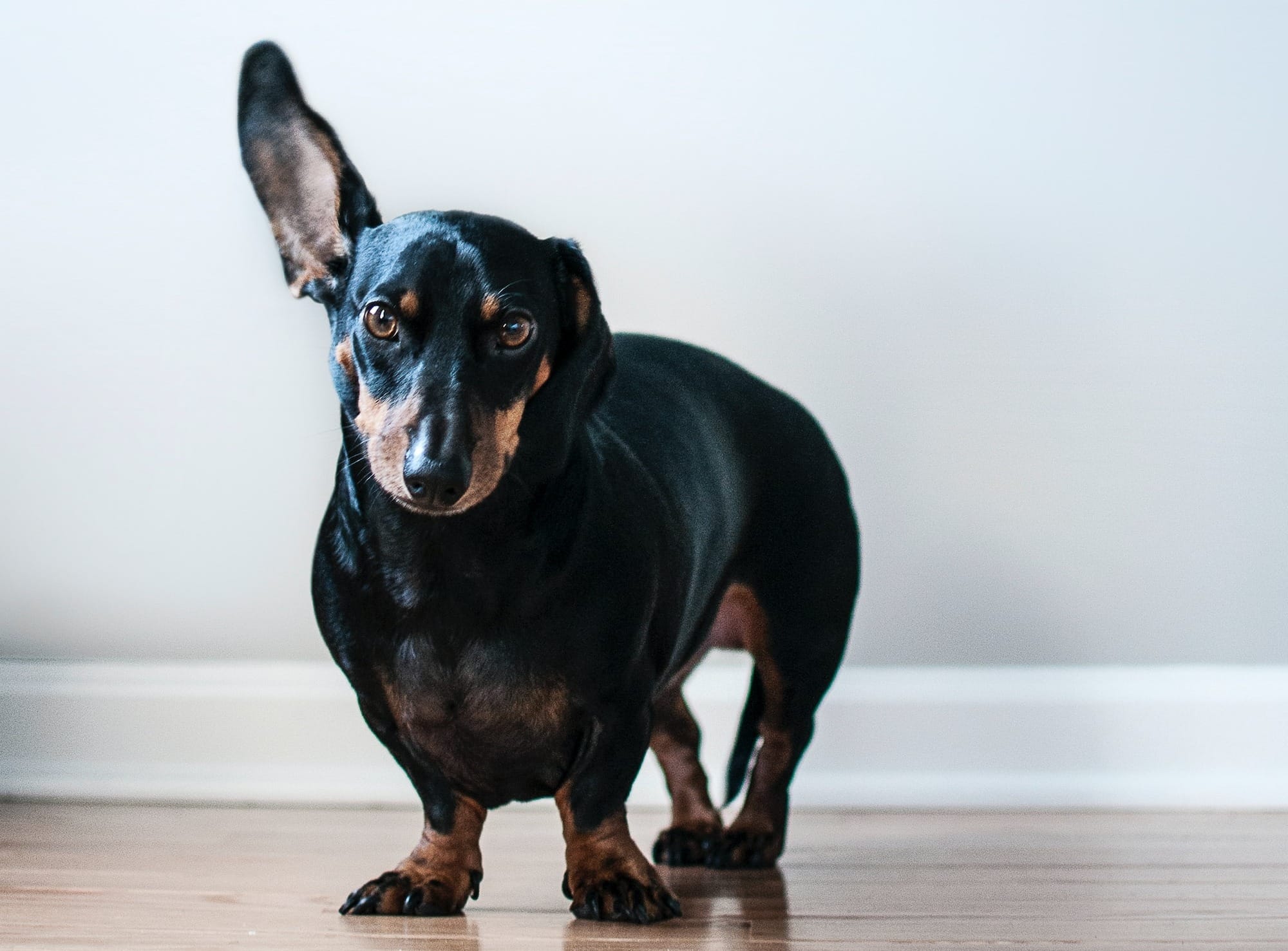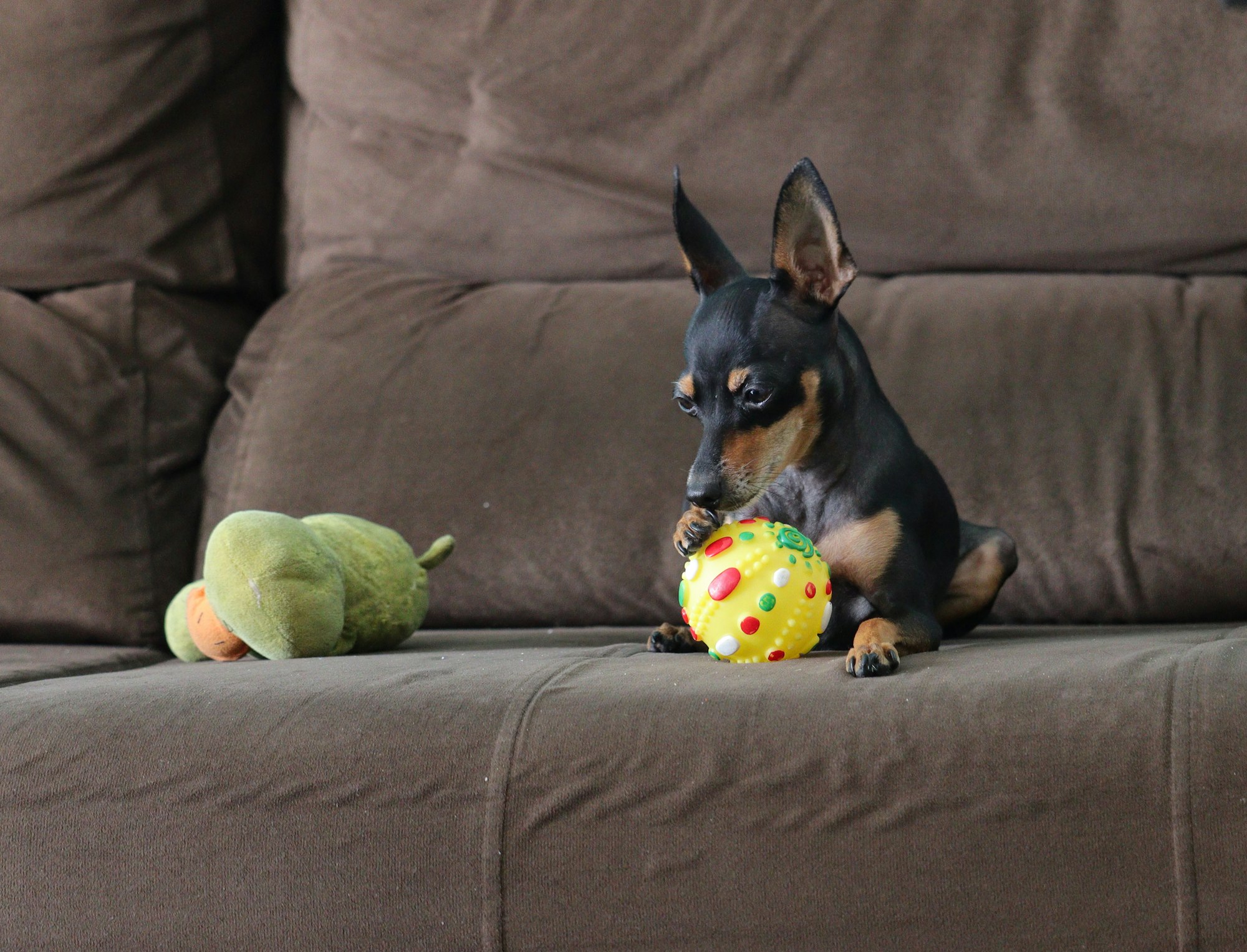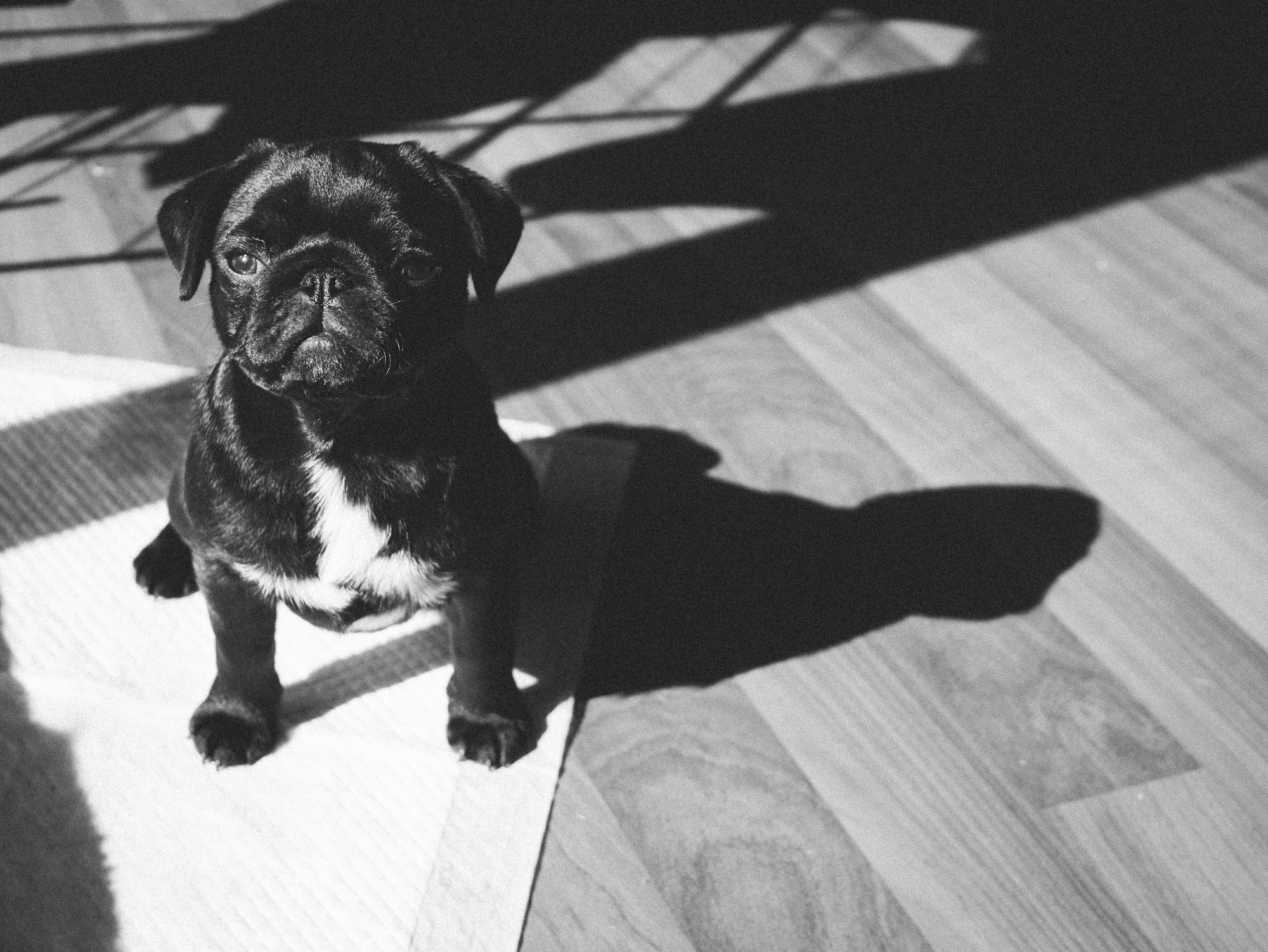Dog owners love their furry friends, but dealing with their accidents in the house can be a frustrating and unpleasant experience. Whether they are puppies or adult dogs, some pets tend to urinate indoors, leaving behind stains and odors that are hard to remove. While there are several reasons why a dog might pee inside, there are also several solutions to prevent this behavior from happening. One of the most popular methods is to use sprays that repel dogs from certain areas of the house.
Understanding Dog Behavior and Urination
Before choosing a spray to keep your dog from peeing inside, it's important to understand why they do it in the first place. Dogs can pee indoors due to several reasons, such as anxiety, fear, territorial marking, or medical issues. Some breeds are more prone to accidents than others, and some dogs might have a harder time adapting to new environments. By identifying the cause of your dog's behavior, you can choose the most effective solution to address it.
Training Your Dog to Avoid Peeing Inside
While sprays can be a useful tool to discourage dogs from peeing indoors, they are not a substitute for proper training. Teaching your dog to go outside and use the bathroom is an essential part of their education, and it requires patience, consistency, and positive reinforcement. By creating a routine, using rewards, and supervising your dog's behavior, you can help them learn where and when to pee.
Understanding Dog Behavior and Urination
Dogs are social animals that communicate through body language, vocalizations, and scent marking. Urination is one of the ways dogs mark their territory and communicate with other dogs. However, inappropriate urination can be a sign of underlying behavioral issues or medical problems.
Common Causes of Inappropriate Urination
Inappropriate urination can be caused by various factors such as anxiety, fear, excitement, stress, and medical issues. Dogs may also urinate inside the house if they are not properly house-trained or if they have not been taken outside frequently enough.
Medical issues such as urinary tract infections, bladder stones, and incontinence can also cause inappropriate urination in dogs. It is important to rule out any medical issues before assuming that the problem is behavioral.
Marking Behavior in Dogs
Marking behavior is a common occurrence in dogs, especially in male dogs that have not been neutered. Dogs may mark their territory by urinating on objects such as furniture, walls, and doors. Marking behavior is often triggered by the presence of other dogs or new objects in the environment.
To prevent marking behavior, it is important to properly socialize and train your dog. Neutering male dogs can also reduce marking behavior. Providing plenty of exercise, mental stimulation, and a consistent routine can also help reduce stress and anxiety in dogs, which can contribute to inappropriate urination.

In summary, understanding dog behavior and urination is essential in preventing inappropriate urination in dogs. By identifying the underlying causes and addressing them appropriately, pet owners can help their dogs maintain good urinary health and prevent behavioral issues.
Training Your Dog to Avoid Peeing Inside
One of the most important things to do when training your dog to avoid peeing inside is to establish a routine. This means taking your dog outside at regular intervals throughout the day, such as after meals, after naps, and before bedtime. By doing this, you can help your dog learn when it is appropriate to go potty and where.
It is also important to establish a consistent potty schedule. This means taking your dog to the same spot each time they go outside to potty. This will help them learn that this is the designated spot for going potty, and they will be more likely to go there in the future.
Positive Reinforcement Techniques
Positive reinforcement techniques can be very effective when training your dog to avoid peeing inside. This means rewarding your dog for good behavior, such as going potty outside. You can use treats, praise, or a combination of both to reward your dog for going potty in the appropriate spot.
It is important to remember that punishment is not an effective way to train your dog. Punishing your dog for going potty inside can actually make the problem worse, as your dog may become afraid to go potty in front of you at all.
By establishing a routine and using positive reinforcement techniques, you can help your dog become fully potty-trained and avoid peeing inside. With patience and consistency, you can achieve success in training your dog to go potty outside.
Identifying and Addressing Health Issues
Sometimes, a dog may urinate indoors due to underlying medical conditions. It is important to be aware of the symptoms of such conditions to identify them early. Some common medical conditions that can cause a dog to urinate indoors include urinary tract infections, diabetes, kidney disease, incontinence, arthritis, and dementia.
Symptoms of urinary tract infections include frequent urination, straining to urinate, and blood in the urine. Dogs with diabetes may urinate more frequently, drink more water, and lose weight. Kidney disease can cause a dog to urinate more or less frequently, depending on the stage of the disease. Incontinence can cause a dog to leak urine, especially when they are sleeping or resting. Arthritis and dementia can make it difficult for a dog to reach the outside to urinate.
When to Consult a Veterinarian
If a dog is exhibiting any of the symptoms mentioned above, it is important to consult a veterinarian. The veterinarian can perform a physical examination, take a urine sample, and run blood tests to determine if there is an underlying medical condition causing the indoor urination. Once the underlying condition is identified, the veterinarian can prescribe appropriate treatment to address the issue.
It is important to note that older dogs may be more prone to medical conditions that can cause indoor urination. Therefore, if a dog is aging, it is important to monitor their urination habits and consult a veterinarian if any changes are noticed.

Choosing the Right Repellents
When it comes to preventing dogs from urinating in the house, there are several options available. Choosing the right repellent is crucial to ensure that the pet doesn't continue to soil the house.
Natural and Homemade Solutions
There are several natural and homemade solutions that can help deter dogs from urinating in the house. Some of the most commonly used ones include lemon juice, vinegar, baking soda, essential oils, and citrus scents.
Lemon juice and vinegar are acidic and can help neutralize the odor of urine, making it less attractive for dogs to urinate in that spot. Baking soda can also be used to neutralize the odor and can be sprinkled on carpets and upholstery. Essential oils like lavender, eucalyptus, and peppermint can be used to create a pleasant scent that dogs dislike. Citrus scents like lemon and orange can also be used to deter dogs.
Commercial Deterrent Sprays
Commercial deterrent sprays are also available for those who prefer a ready-made solution. These sprays contain ingredients that dogs find unpleasant, such as bitter apple, cayenne pepper, and chili powder. The sprays can be sprayed directly on the areas where the dog has urinated or on furniture and carpets.
Enzymatic cleaners are also available, which are designed to break down the enzymes in urine and eliminate the odor. These cleaners can be used in conjunction with other deterrents to help prevent dogs from urinating in the house.
It is important to note that not all repellents work for all dogs. Some dogs may be deterred by certain scents, while others may not be affected at all. It may take some trial and error to find the right repellent that works for a particular dog.
Cleaning and Eliminating Odors
Cleaning up after a dog that has urinated in the house can be a challenging task. It is important to clean the area thoroughly to eliminate any odors that may attract the dog to the same spot again. The first step is to blot up as much of the urine as possible with paper towels or a clean cloth. Once the area is dry, mix a solution of equal parts water and white vinegar and apply it to the affected area. Let it sit for a few minutes, then blot it up with a clean cloth. Repeat this process until the area is clean and odor-free.
Another effective cleaning solution is a mixture of hydrogen peroxide and baking soda. Mix one teaspoon of dishwashing detergent, one cup of hydrogen peroxide, and one cup of baking soda in a spray bottle. Shake the bottle well and spray the solution on the affected area. Let it sit for a few minutes, then blot it up with a clean cloth.
Preventing Future Accidents
To prevent future accidents, it is important to train the dog to go outside. Take the dog outside frequently, especially after meals and naps. Reward the dog with treats and praise when it goes outside. If the dog continues to have accidents inside, consider using a dog urine repellent spray. These sprays contain natural ingredients that deter dogs from urinating in certain areas.
It is also important to keep the house clean and odor-free. Regularly vacuum carpets and furniture to remove any pet hair and dander. Use a pet odor neutralizer spray to eliminate any lingering odors. With consistent training and cleaning, it is possible to prevent future accidents and keep the house smelling fresh.
Creating a Dog-Friendly Environment
Dogs are social animals and require a comfortable and secure environment. Creating a dog-friendly environment is essential to prevent them from peeing in the house. This section will provide some tips on how to create a comfortable and safe space for your furry friend.
Safe Spaces and Pee Pads
Dogs need a safe space where they can relax and feel comfortable. Providing them with a designated area where they can rest and sleep can help prevent accidents. A crate or a pen can be an excellent option for this purpose. Dogs usually do not pee where they sleep, so providing them with a comfortable space can help prevent accidents.
Pee pads can also be a useful tool to prevent your dog from peeing in the house. Place pee pads in the designated area where your dog spends most of its time. This will help train your dog to pee in a specific location and prevent accidents in other areas of the house.

Managing Anxiety and Triggers
Anxiety and triggers can cause dogs to pee in the house. Dogs can become anxious due to various reasons, such as loud noises, unfamiliar people, or changes in their routine. Identifying the triggers that cause anxiety in your dog can help prevent accidents.
Managing anxiety can be achieved by providing your dog with plenty of exercise and playtime. Exercise can help reduce anxiety and stress levels in dogs. Going outside for walks and playing in the yard can also help prevent accidents in the house.
Housebreaking your dog can be a challenging task, but creating a dog-friendly environment can make the process easier. By providing your dog with a safe space and managing anxiety and triggers, you can help prevent accidents and create a comfortable and secure environment for your furry friend.
Dealing With Specific Scenarios
As dogs age, they may develop incontinence or other health issues that make it difficult for them to hold their bladder for extended periods. In these cases, it's important to provide frequent potty breaks throughout the day. A good rule of thumb is to take your older dog outside every 2-3 hours, or more frequently if needed.
If your dog is having accidents in the house despite frequent potty breaks, it may be a sign of an underlying health issue. It's important to consult with a veterinarian to rule out any medical problems.
Adjusting to New Changes
Dogs can become stressed or anxious when faced with new changes in their environment, such as moving to a new home or the addition of a new pet. This can lead to accidents in the house, even in dogs that are otherwise well-trained.
To help your dog adjust to new changes, it's important to provide a calm and stable environment. Stick to a consistent routine and provide plenty of exercise and mental stimulation. If your dog is having accidents, it may be helpful to confine them to a smaller area of the house and gradually expand their space as they become more comfortable.
It's also important to avoid punishing your dog for accidents, as this can increase their anxiety and make the problem worse. Instead, use positive reinforcement to encourage good behavior and provide plenty of love and affection.
When and How to Seek Professional Help
If a pet owner has tried various sprays and other solutions to prevent their dog from peeing in the house but has not seen any improvement, it may be time to seek professional help. There are two types of professionals that pet owners can turn to: behavior experts and trainers, and medical professionals.
Behavior Experts and Trainers
Behavior experts and trainers can help pet owners identify the root cause of their dog's behavior and provide guidance on how to correct it. They can work with pet owners to develop a training plan that is tailored to their dog's specific needs and personality. This may include techniques such as positive reinforcement, crate training, and behavior modification.
When choosing a behavior expert or trainer, it is important to look for someone who is experienced and certified. Pet owners should also check references and reviews to ensure that they are working with a reputable professional.
Medical Professionals
In some cases, a dog's peeing behavior may be caused by a medical condition. Medical professionals, such as veterinarians, can help pet owners determine if there is an underlying medical issue that needs to be addressed. This may include conditions such as urinary tract infections, bladder stones, or diabetes.
If a medical condition is identified, the pet owner can work with their veterinarian to develop a treatment plan. This may include medication, dietary changes, or surgery.
In conclusion, if a pet owner has tried various sprays and other solutions to prevent their dog from peeing in the house without success, it may be time to seek professional help. Behavior experts and trainers can help pet owners develop a training plan that is tailored to their dog's specific needs, while medical professionals can help identify and treat any underlying medical conditions.
Frequently Asked Questions
- How can vinegar be used to deter dogs from peeing indoors?
- Vinegar is a natural and effective way to deter dogs from urinating indoors. Mix equal parts of white vinegar and water and spray the solution on areas where your dog tends to pee. The strong scent of vinegar will discourage your dog from marking his territory in that area. However, be sure to test the solution on a small, inconspicuous area first to ensure it doesn't damage your flooring or furniture.
- What natural remedies prevent dogs from marking inside the house?
- There are several natural remedies that can help prevent dogs from marking inside the house. Citrus fruits such as lemons and oranges have a strong scent that dogs dislike. You can also try using essential oils such as lavender, peppermint, or eucalyptus. Mix a few drops of the oil with water in a spray bottle and apply it to the areas your dog tends to mark.
- Which scents are effective at stopping dogs from urinating on carpets?
- Scents such as citrus, vinegar, and essential oils like lavender, peppermint, and eucalyptus can be effective at stopping dogs from urinating on carpets. You can also try using commercial repellents that contain these scents.
- Are there any homemade solutions to discourage dogs from peeing on furniture?
- Yes, there are several homemade solutions that can be used to discourage dogs from peeing on furniture. One effective solution is to mix equal parts of water and apple cider vinegar in a spray bottle and apply it to the areas your dog tends to mark. You can also try using a mixture of water and lemon juice or essential oils like lavender, peppermint, or eucalyptus.
- What is the best commercial repellent to prevent dogs from peeing on carpets?
- There are several commercial repellents available that can help prevent dogs from peeing on carpets. Look for products that contain natural ingredients such as citrus, vinegar, or essential oils like lavender, peppermint, or eucalyptus.
- Can 'Don't Pee Here' sprays effectively prevent dogs from peeing in undesired areas?
- Yes, 'Don't Pee Here' sprays can be effective at preventing dogs from peeing in undesired areas. These sprays contain scents that dogs find unpleasant, such as citrus or vinegar. However, it's important to note that these sprays should be used in conjunction with training and positive reinforcement to ensure long-term success.




